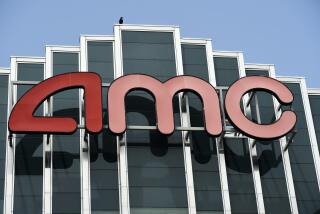Pearce Outlines Restructuring in SEC Filing : Miami Physician Discloses 5.4% Stake in AMI
- Share via
A Miami doctor and consultant to American Medical International disclosed Monday that he has acquired 5.4% of the company’s shares as an investment but hinted that he might attempt a takeover of the hospital chain.
In a filing with the Securities and Exchange Commission, Dr. M. Lee Pearce said he was concerned about AMI’s lackluster earnings and outlined a restructuring program for the Beverly Hills company that calls for staff reductions and the sale of underperforming assets.
Pearce said he intends to support AMI’s 16 directors for reelection to the board at the annual meeting Jan. 21. But he said that if the company doesn’t act to improve profits, he may pursue a number of alternatives, including a sale of assets, a merger with another firm or a change in management.
AMI spokesman Mick Taylor said the company had no comment on Pearce’s disclosure. A spokeswoman said the publicity-shy Pearce was out of town and unavailable for comment.
Health-care industry analysts said it wasn’t clear whether Pearce posed a threat to AMI. “No one seems to know anything about him, or his ability to finance a takeover,” said Joyce Albers, an analyst with First Boston in New York.
Although not well known on Wall Street, Pearce is no stranger to AMI. In 1985, he and a partner sold two Florida acute-care hospitals to AMI for $180 million. In March, 1987, AMI hired Pearce as a consultant on Medicare reimbursement in Florida, where AMI owns 13 hospitals. Pearce’s contract with AMI is for three years.
Post-Crash Purchases
Pearce has also earned a reputation as a corporate raider in Florida banking circles, where he has threatened three banks since 1980. According to his spokeswoman, he earned about $20 million in profit on his stock investments in Florida Commercial Banks, Florida National Banks and Southeast Banking Corp. In the case of Southeast Banking, he sold his 1.7 million shares back to the bank for a profit of about $12 million.
In his SEC filing Monday, Pearce reported that he purchased his AMI shares during the past two years, accumulating about half his holdings after the Oct. 19 stock market crash. Pearce said he paid $60.3 million, or an average share price of $13.67, for his 4.41 million AMI shares.
AMI stock closed Monday at $13.375, up 75 cents, in composite trading on the New York Stock Exchange.
For AMI, Pearce’s interest must represent a case of deja vu. Last January, AMI fought off a $20-a-share takeover bid from Dr. LeRoy A. Pesch, a Chicago doctor with interests in real estate and health-care management. Pesch abandoned his quest after AMI rejected a sweetened $22-a-share offer. “January seems to be the time of year for these things,” said Albers, the First Boston analyst.
AMI is in better shape financially than it was a year ago. During the past 18 months, the company sold 15 hospitals, fired 2,000 employees and shut down its group health insurance division to reduce costs. The nation’s third-largest for-profit hospital management chain, AMI earned $180.4 million on revenue of $3.9 billion in fiscal 1987, which ended last Aug. 31. It lost $97.3 million a year earlier.
The firm’s restructuring “has produced good results,” Albers said. But high labor costs and weak occupancy rates will hurt AMI in 1988, she said. The company owns or manages 89 hospitals, mostly in the West and South.
Consultant for AMI
Pearce, a medical doctor by training, has spent most of his career in hospital management. At one point, he owned three Florida hospitals, including the hospitals in Miami and Fort Lauderdale that were sold to AMI. After selling the hospitals, Pearce turned to health-care consulting. His Miami-based company, General Health, has about 30 clients, including AMI, according to a spokeswoman.
Pearce’s other interests include a 9.99% stake in Amerifirst Federal Savings & Loan in Miami, which he acquired last fall as an investment, according to a spokeswoman. In July, 1986, he led an investment group that made an unsuccessful bid for five Spanish language television stations, including KMEX in Los Angeles.
More to Read
Inside the business of entertainment
The Wide Shot brings you news, analysis and insights on everything from streaming wars to production — and what it all means for the future.
You may occasionally receive promotional content from the Los Angeles Times.










